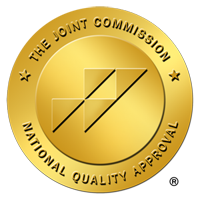If you or someone you know is struggling with feelings of anxiety, depression, stress, or other conditions, but you aren’t seeking help for those symptoms, you might be addressing those symptoms in ways you don’t realize: self-medicating.
What is self-medicating? It’s when you choose how you want to “medicate” yourself without input from professionals, without legitimate medications, and often, with harmful substances.
What is Self-Medicating?
Self-medicating refers to any activity or, more commonly, substance that an individual uses in place of medication for a mental health disorder.
What is self-medicating in the context of substance abuse? This is where an individual uses drugs or alcohol, prescription or illicit, to try to control, hide, or diminish symptoms of another issue like:
- Depression
- Anxiety
- PTSD
- Bipolar disorder
- Stress
- Chronic pain
Self-medicating can also be an avoidance strategy where individuals try to control certain symptoms by avoiding triggers entirely and never quite dealing with the related symptoms.
What Self-Medication Looks Like
Self-medication can look very different from one person to the next. Not all individuals who self-medicate are aware that they are doing so. For example:
Todd feels overwhelmed at work most of the time, with a lot of pressure coming from his new job including risks of federal prison should he make mistakes with certain accounts or contracts.
Todd has a work phone, and even though it’s only supposed to be used for contact during work hours, he has several contractors who reach out at all hours of the day or night. Todd has difficulty coping with his concerns about the future and his worries about missing a deadline or messing up a contract, so he drinks around five glasses or one to two bottles of wine per night to help take the edge off so that he can go to sleep.
In this example, Todd is likely dealing with an anxiety disorder or, at the very least, high levels of generalized anxiety, but rather than working with a therapist to develop coping mechanisms or perhaps take medication, Todd is self-medicating with alcohol. This leaves him susceptible to high levels of alcohol abuse and a substance abuse disorder.
Now, let’s look at another example.
Kathy was diagnosed with depression when she was younger. During high school, she was given medication, but it led to severe weight gain and suicidal ideations so that particular medication was stopped when she turned 18.
At college, Kathy started drinking recreationally, and this helped her not feel so depressed. In between classes, she regularly attended any party that was going on and felt great while she was drinking but not so great when she stopped.
A few years later, all of her friends started pairing off, getting into serious relationships, or getting married at a time when Kathy thought they were still all supposed to be having fun.
She started having money problems after she lost one of her scholarships, had fewer opportunities to socialize because of a second job.
So Kathy started noticing her feelings of depression again, but she didn’t want to be on medication like last time because she was afraid of the symptoms and side effects. So, she started using alcohol more frequently whenever her symptoms of depression appeared.
In this example, Kathy was aware of a pre-existing mental health disorder, but instead of trying a new type of treatment, exploring other medications, or looking at holistic options, Kathy turned to alcohol, putting her at risk for an alcohol use disorder.
Getting Help with American Detox and Treatment
If you or someone close to you has turned to self-medication and developed an addiction, American Detox and Treatment can help. We offer detox and residential inpatient rehab, with programs designed specifically for First Responders or military veterans as well. Our substance abuse treatment programs help individuals deal with underlying factors leading to self-medication, often related to unresolved trauma.
When dealing with trauma or mental health issues like PTSD, it can be easy to let drugs or alcohol be a quick fix, but we are here to help with long-term recovery.
What is self-medicating? For many people, it’s the use of drugs or alcohol to try and cope with symptoms of underlying and unresolved trauma or co-occurring mental health disorders. However, this leaves individuals at a high risk of developing substance abuse issues without addressing the core issue. At our facility, we help you look at the causes of your self-medication routine and find healthier alternatives.
Reach out to our staff today to learn more about our programs.


